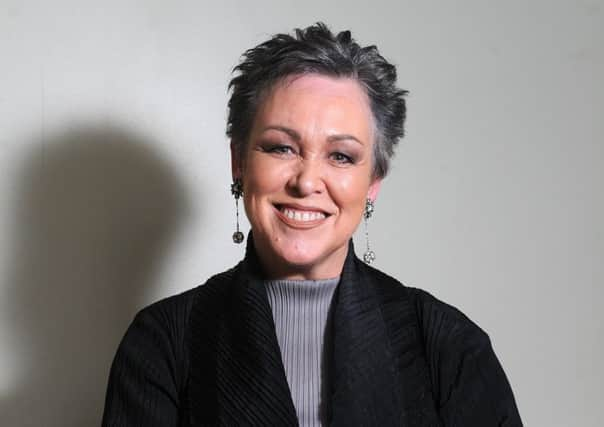Christa Ackroyd: Breaking the silence that kills


He was stylish and funny and witty and handsome and bought the best presents ever for his only niece and nephew. The year was 1970. I was 13 and my brother 11 and England were defending their 1966 victory in the World Cup. It was a time of great excitement and spirits were high. Uncle Keith asked if he could take us for a day out on the eve of competition to Leeds, when we went on the train and tasted our first Italian food. I came home clutching a copy of the England team anthem Back Home, having listened to it in a plywood booth at Woollies. Brian chose an England football.
I don’t think we ever had a day out with Uncle Keith again. And it is one of my favourite memories.
Advertisement
Hide AdAdvertisement
Hide AdHe was 40 when he died and it is the only time I saw my father cry. I can picture him now buffing his shoes over and over on top of the dustbin outside in the garden, his face turned away. We were advised to just leave him be. Grown men don’t cry and certainly not in front of the children. Mum tried to explain to me that Uncle Keith had died because he had been sad. So I worried that Dad was sad. But we never really talked about it. We certainly never mentioned the word suicide. Guilt, I suppose.
This week Coronation Street will face strong criticism for the storyline that sees Aidan Connor do the same as my Uncle Keith. Like Uncle Keith, Aidan was on the up, with a string of beautiful girlfriends, a career that was going places and a loving family, so the writers must have got it wrong, scream the armchair critics. It’s too unrealistic, too depressing, and not a suitable subject before the watershed. Well it is and they haven’t.
This week a group of four girlfriends discovered we all knew someone close who had taken their own life. None of us had predicted it would happen. One even knew of not one but three male friends of her son who had done so under the age of 30. And so we started the dialogue, from feeling down to darker thoughts.
Today, suicide is the single biggest killer of young men under the age of 45 and “why?” is still the most asked question for those left behind. One in four of us will suffer from depression but three times as many men as women will take their own lives, 84 a week. Last year Prince William and Prince Harry spoke so movingly about how they had tried and sometimes failed to cope with the death of their mother 20 years ago. So they launched Heads Together to dispel the stigma surrounding mental health. It was estimated it prompted more than half of us to talk. The Samaritans, who keep their lines open every hour of every day, have a five-year campaign to reduce the suicide rate, while CALM, the Campaign Against Living Miserably has started a nightly phone line and internet service just for men, in a bid to save at least some of the 5,000 people the statistics tell us will take their own lives this year.
Advertisement
Hide AdAdvertisement
Hide AdAnd the campaign is happening in our part of the world too. The North of England, where men are often portrayed as being emotionally self-sufficient, is one of the blackspots for that most desperate act.
North Yorkshire Police has been at the forefront of a revolution in policing, introducing mental health training this year for 1,500 officers on the ground, after research showed up to 20 per cent of their time was spent dealing with mental health issues.
Leeds solicitor Jodie Hill is campaigning to make it mandatory for companies to train mental health first aiders, as it is to offer physical first aid. And in that most macho of sports, Rugby League, RL Cares was set up following the suicide of Terry Newton, a former Wigan, Leeds and Great Britain hooker – he was 31. And who in Yorkshire could forget Gary Speed? Handsome and successful, but who could cope no more.
So good on you Corrie. It is a storyline that is necessary. And don’t tell me Coronation Street is too dark, that it’s not what it used to be. Life is also darker for many than it used to be.
Advertisement
Hide AdAdvertisement
Hide AdI never talked about how Uncle Keith died to my father. It was too painful for him. It still hits home that even the phrase ‘committed suicide’ sounds almost criminal, a throwback to a time when, until 1961, it was illegal to ‘commit’ suicide and it was considered by the church to be a mortal sin. I worshiped Uncle Keith. But we never spoke about his suicide. It was too shameful. At last we are accepting it really is okay to talk.